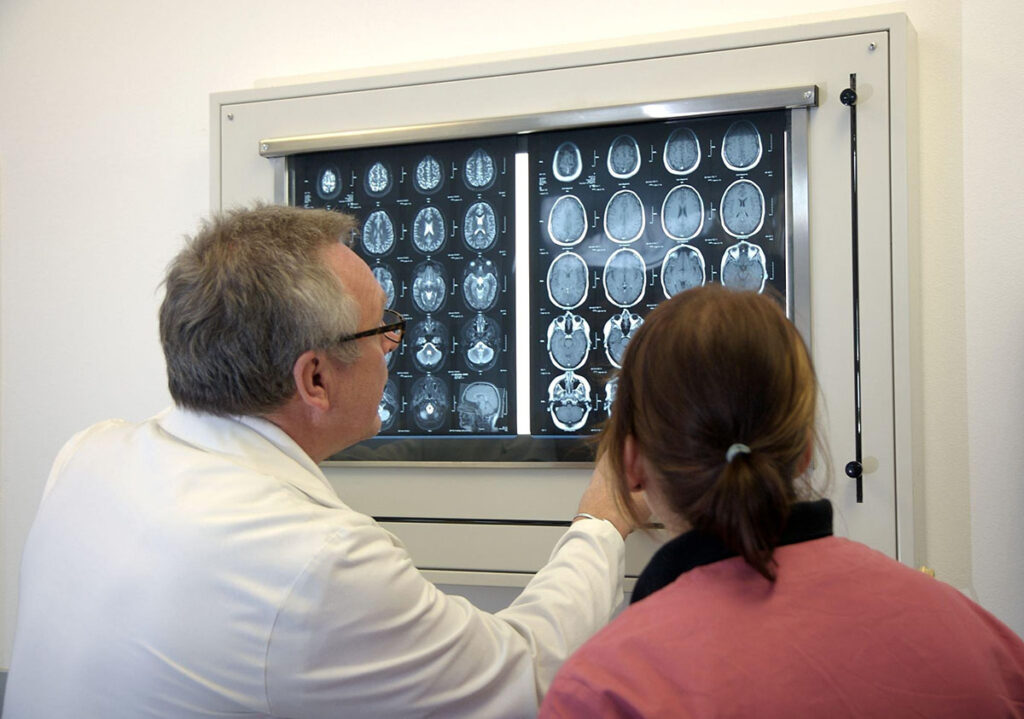What is Epilepsy?
Epilepsy is a neurological disorder where sudden rushes of electrical energy cause an imbalance in the nervous system. These brain abnormalities can cause recurrent seizures that may involve loss of awareness or unusual movements and sensations.
A single, isolated seizure isn’t necessarily a sign of epilepsy. More commonly, a person might get a diagnosis of epilepsy following two or more unprovoked seizures that occur over a span of at least 24 hours.
According to the World Health Organization and NHS, more than 50 million people worldwide deal with epileptic seizures. Anyone can develop epilepsy regardless of age, but newly diagnosed epilepsy is most common in children or older adults.
Epilepsy Symptoms
Some people with epilepsy experience lifelong seizure recurrence, while others may outgrow their symptoms as they age. Individuals with active epilepsy can control their seizures with medication, surgery, or other treatment options.
An epileptic seizure may come with a wide range of symptoms, from blankly staring to feeling considerable movement/twitching in one’s arms or legs. In many cases, seizures originate from a certain area in the brain and specifically affect the functions of that area.
Depending on the location of the brain imbalance, epilepsy specialists recognise two major groups of seizures: focal seizures (previously called partial seizures) and generalised seizures.
Focal seizures are a result of an imbalance in a specific brain area and can be:
Simple – only causing altered emotions and sensory responses, but no impaired awareness
Complex – involving loss of consciousness (staring or repetitive movements with no awareness of one’s surroundings)
Generalized seizures involve the entirety of the brain and are further divided into:
Absence seizures – typically affecting children, they involve blankly staring for 5-10 seconds, sometimes accompanied by distinct body movements (eye blinking, lip smacking); they may happen in clusters of up to 100 times a day and cause loss of consciousness
Tonic seizures – causing stiffness in arm, back, or leg muscles; they may involve unconsciousness and cause the person to collapse
Atonic seizures (or drop seizures) – involving loss of muscle control (usually in the legs) that causes the person to fall to the ground
Clonic seizures – causing rhythmic or jerking movements in the face, neck, or arm muscles
Myoclonic seizures – involving sudden, brief twitching spasms in certain muscles or muscle groups
Tonic-clonic seizures – the most drastic type of seizures, they cause sudden body stiffening, loss of consciousness, twitching, shaking, and sometimes loss of bladder control or biting one’s tongue
Causes of Epilepsy
Epilepsy is one of the most common neurological conditions affecting brain activity. This seizure disorder can develop at any age. However, it is more common for doctors to diagnose epilepsy in early childhood or older age (after 60 years).
The following factors may put a person at increased risk of developing epilepsy:
- Genetic predisposition
- Fetal brain injury
- Brain infection (meningitis, viral encephalitis, HIV)
- Severe head injury
- Developmental differences
- Other illnesses linked to brain activity, such as brain tumors, stroke, or Alzheimer's disease

Epilepsy Diagnosis
An epilepsy specialist typically diagnoses patients based on the results of several tests, including EEG (electroencephalogram), MRI (magnetic resonance imaging), or CT (computed tomography) scan.
Specific types of seizures are related to different forms of epilepsy. An accurate epilepsy diagnosis of the individual’s seizures and type of epilepsy is essential for further treatment.
Epilepsy Treatment
There are several methods that can decrease seizures in individuals with epilepsy, including antiepileptic medications, dietary restrictions, and epilepsy surgery. Other approaches, such as vagus nerve stimulation (VNS) and deep brain stimulation, are likely to be more accessible in the near future.
Most patients with multiple seizures initially seek out treatment through medication. Although they don’t address the underlying condition, antiepileptic medications effectively reduce seizure frequency. Before opting for any prescription, it is important to inquire with your doctor about its benefits and potential side effects.
Patients with refractory epilepsy are resistant to medications. In these cases, epilepsy surgery provides the opportunity for permanent seizure control. Furthermore, some individuals with epilepsy may benefit from a ketogenic or Atkins diet (low carbohydrate diet). It’s also important to know that stress can trigger seizures.
Living with Epilepsy
As a chronic neurological disorder, epilepsy affects each person uniquely. With adequate support from specialised epilepsy centers or care services at one’s own home, individuals can efficiently control their seizures.
Challenges
Apart from seizures, individuals with epilepsy might experience other related challenges in everyday life. Possible challenges include:
- Mood issues
- Disrupted sleep
- Impaired cognitive functions (memory and thinking)
- Side effects of medications
- Difficulties with social interaction
- Sudden unexpected death (in rare cases)
Staying safe
The abrupt nature of seizures makes many everyday activities potentially dangerous for people with epilepsy. For example, uncontrollable seizures can prevent individuals from driving or even crossing a busy street safely.
Besides regular visits to your epilepsy specialist, you can take the following measures to cope with everyday challenges and risks:
- Keep track of your seizures and identify potential triggers
- Educate your close family members and friends on how to handle seizures in case you have one in their presence
- Use a medical alert bracelet so that people around you can react appropriately in case of an emergency
- Stick to a healthy diet and engage in physical activities


Epilepsy and pregnancy
In most cases, epilepsy doesn’t prevent women from getting pregnant. However, it is crucial to discuss the condition and the prescribed medication with a specialist before planning pregnancy. Some antiepileptic medications can be potentially harmful to a developing fetus. Therefore, if the patient’s seizures are under control, the doctor can decide to reduce the medications.
Controlling Your Seizures
Regularly taking prescribed medication is the most secure way to control seizures. Remember to keep in touch with your doctor and ensure regular assessments of the medication’s effect on your condition. It’s important to focus on good quality sleep, healthy diet and physical exercise in the proactive management of epilepsy.
Is Epilepsy a Learning Disability?
Epilepsy isn’t commonly classified as a learning disability, but it can affect learning in several ways. Frequent and intense seizures that involve loss of consciousness can have an effect on learning new information in the long run. Daytime seizures may weaken alertness and the ability to store short-term information, whereas night-time seizures can impair memory and language functions.
How Leaf Complex Care Supports People With Epilepsy
For our clinicians at Leaf Complex Care, creating a better world for individuals with support needs is more than just a career, it’s a calling.
We provide tailored support for children and adults who need care and support in their own homes. Our support workers lead people on their journey to independence with dedication, patience, and kindness.
If you are searching for a care provider for yourself or a loved one, Leaf Complex Care is the right place for you. We offer support services in Bristol, Slough, Somerset, and the Midlands. Contact us now and we will prepare an individualised plan that caters to your specific needs.







